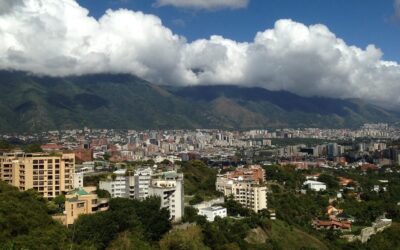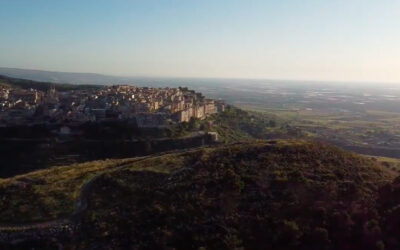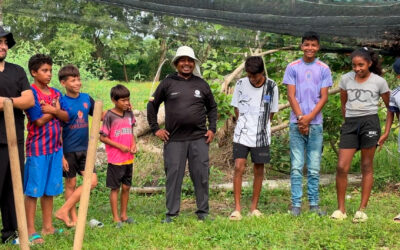 It is two o’clock in the morning on the 5th of December, 2013. The inhabitants of Bangui, capital of the Central African Republic, are awoken by the detonation of heavy weapons. In the streets, there is an immediate general stampede in the hopes of saving oneself and one’s loved ones.
It is two o’clock in the morning on the 5th of December, 2013. The inhabitants of Bangui, capital of the Central African Republic, are awoken by the detonation of heavy weapons. In the streets, there is an immediate general stampede in the hopes of saving oneself and one’s loved ones.
Ejovie and Amandine are two Gen3 (teens of the Focolare Movement who commit themselves to living the ideal of unity). They share about the confusion and bewilderment of those hours and in the days that followed, but also of the decision not to give in to fear inspite of their tender age.
“With the family we started to run towards the Major Seminary – Ejovie wrote – together with all those who were escaping in the same direction. In the crowd I saw a mother with her baby strapped to her back, her luggage on her head, and other small children; one of them coudn’t run and was crying, and even the mother was walking slowly because she was sick. No one was stopping to help them. A voice stopped me from going ahead. I took the small boy by the hand even if I was a bit worried because I had lost sight of my own family members”.
Ejovie’s actions didn’t go unnoticed: in fact other two youth stopped to help the woman and her small children to reach a religious institute where they found hospitality. Knowing that they were safe, Ejovie finally walked towards the Seminary where she was able to embrace her family.
Amandine too found refuge in the Seminary, together with her family. “We were all encamped in a hall with other families – the teen related. We had to sleep on the floor, on a piece of cloth, but I thought that, even in this situation, I could continue to help whoever was beside me. We are many but we share everything: food and other goods. One day I went out to wash the clothes of my family and I had already finished when an elderly lady asked me if I could also wash hers. I wanted to refuse as I was already tired. Then I listened for the answer in my heart: ‘This lady could be my mother, and if I refuse to wash her clothes, who will wash them for her?’ For love to be real it has to be concrete. I washed her clothes and I put them under the sun to dry with the others. She thanked me: ‘May God add a year to your life, my child!’. It was difficult to describe my joy!”
 Ejovie and Amandine are involved in a campaign of sensibilization to hygiene, organized by the UNICEF and by other NGOs in the context of war. “We grasped this occasion to help people who have lost everything. We also shared the art of loving the neighbor. We can see that everyone is suffering very much because of the war: there is a lot of hatred, revenge is always sought. But we feel that we must help and love everyone, even our enemies. and it is only by forgiving that we can start to rebuild peace”.
Ejovie and Amandine are involved in a campaign of sensibilization to hygiene, organized by the UNICEF and by other NGOs in the context of war. “We grasped this occasion to help people who have lost everything. We also shared the art of loving the neighbor. We can see that everyone is suffering very much because of the war: there is a lot of hatred, revenge is always sought. But we feel that we must help and love everyone, even our enemies. and it is only by forgiving that we can start to rebuild peace”.
(557)




0 Comments